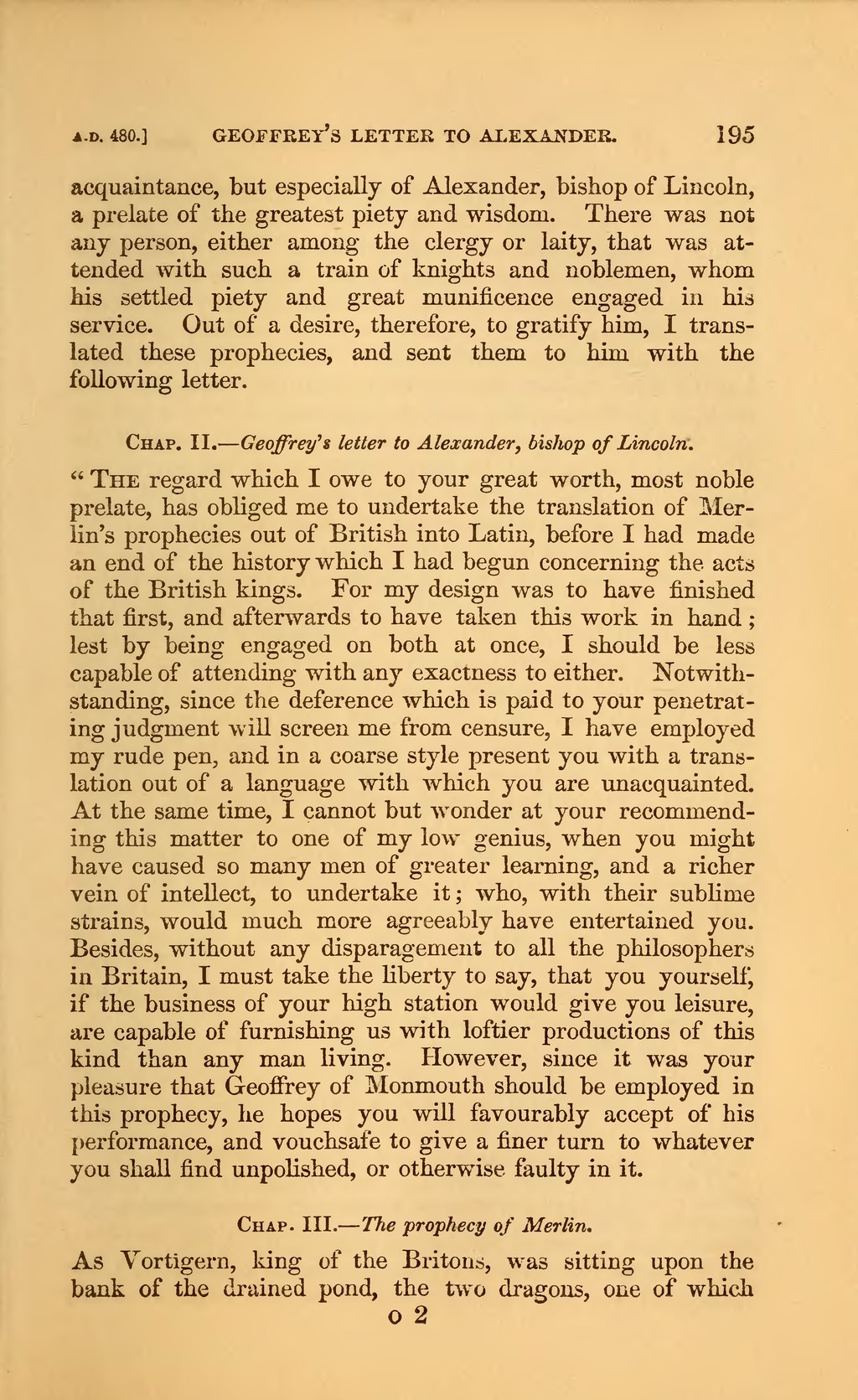acquaintance, but especially of Alexander, bishop of Lincoln, a prelate of the greatest piety and wisdom. There was not any person, either among the clergy or laity, that was attended with such a train of knights and noblemen, whom his settled piety and great munificence engaged in his service. Out of a desire, therefore, to gratify him, I translated these prophecies, and sent them to him with the following letter.
Chap. II.—Geoffrey's letter to Alexander, bishop of Lincoln.
"The regard which I owe to your great worth, most noble prelate, has obliged me to undertake the translation of Merlin's prophecies out of British into Latin, before I had made an end of the history which I had begun concerning the acts of the British kings. For my design was to have finished that first, and afterwards to have taken this work in hand; lest by being engaged on both at once, I should be less capable of attending with any exactness to either. Notwithstanding, since the deference which is paid to your penetrating judgment will screen me from censure, I have employed my rude pen, and in a coarse style present you with a translation out of a language with which you are unacquainted. At the same time, I cannot but wonder at your recommending this matter to one of my low genius, when you might have caused so many men of greater learning, and a richer vein of intellect, to undertake it; who, with their sublime strains, would much more agreeably have entertained you. Besides, without any disparagement to all the philosophers in Britain, I must take the liberty to say, that you yourself, if the business of your high station would give you leisure, are capable of furnishing us with loftier productions of this kind than any man living. However, since it was your pleasure that Geoffrey of Monmouth should be employed in this prophecy, he hopes you will favourably accept of his performance, and vouchsafe to give a finer turn to whatever you shall find unpolished, or otherwise faulty in it.
Chap. III.—The prophecy of Merlin.
As Vortigern, king of the Britons, was sitting upon the bank of the drained pond, the two dragons, one of which
